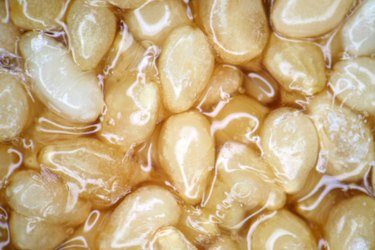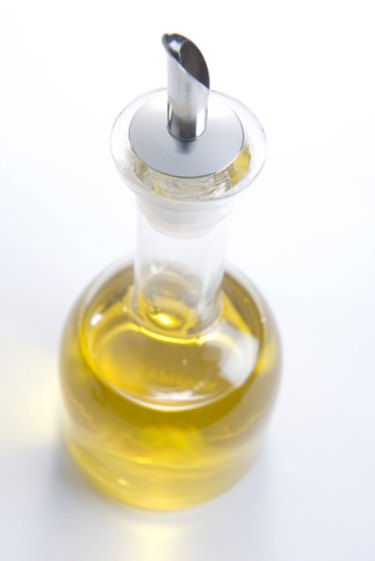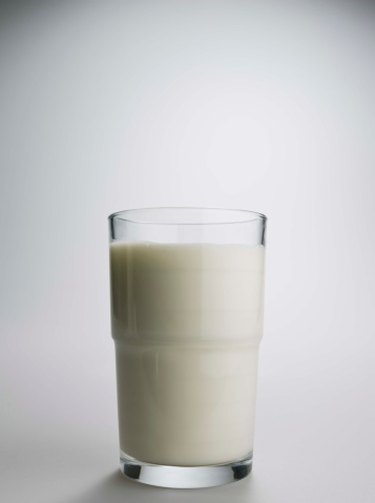
White sesame seeds and black sesame seeds differ in more than just color. Both are used extensively for cooking and in Chinese medicine, with each boasting its own niche. Differences aside, both black and white sesame seeds are nutritional goldmines.
Appearance
Video of the Day

The most distinguishable difference between the white and black sesame seeds is the obvious difference in color. Black sesame seeds are not hulled, while the protective casing has been removed from white sesame seeds.
Video of the Day
Taste

Black sesame seeds have a slightly bitter taste, but produce the highest quality oil. White sesame seeds have an earthy, nutty taste and are better suited for sweeter recipes such as cakes and sesame bars (white sesame shaped into bars and covered in honey).
Uses

White sesame seeds and black sesame seeds are used for very different purposes. White sesame seeds are popular in food products, while black sesame seeds are pressed for oil or used in alternative medicine. White sesame seeds are also very popular ground down into a fine powder to create tahini, a paste used in Arabic cooking. Black sesame seeds have long been associated with health benefits and hair growth.
Nutritional Value

Black sesame seeds contain more calcium than hulled (white) sesame seeds. Both varieties contain a high mineral content and are often eaten by people with milk allergies as an alternative source of calcium. They are also an excellent source of magnesium and copper.